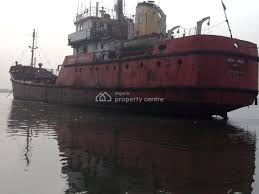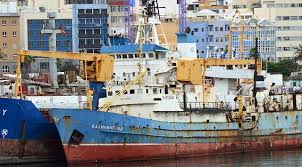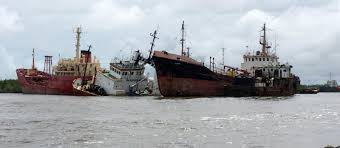![]()
If you’ve landed on this article page, you’re probably searching for a
good business idea—an idea that’s light on the pocket but heavy on
returns, promising both a fulfilling journey and potential profit.
|
How To Start A Scrap Vessel Supply Business in Nigeria
A scrap vessel, scientifically known as an “end-of-life vessel”
or “ship for recycling,” refers to a decommissioned or retired
ship that is no longer in service and is intended for
dismantling, recycling, or repurposing.
The Scrap Vessel Supply Business in Nigeria involves the
procurement and supply of decommissioned ships for recycling
purposes. This business requires thorough research work to
identify potential sources of scrap vessels, such as retired
commercial ships or naval vessels, and establish reliable supply
chains. The setup period of the business involves obtaining
necessary licenses, establishing contacts with ship owners or
brokers, and ensuring compliance with environmental regulations
and safety standards.
On a global scale, the Scrap Vessel Supply Business presents
export opportunities for Nigeria. The demand for scrap metal,
including steel, copper, and other valuable materials recovered
from dismantled vessels, remains high in international markets.
Nigeria can leverage its competitive advantages in the scrap
vessel sector to meet global demands, thus contributing to
foreign exchange earnings and economic growth.
Oil Tankers: Oil tankers are vessels designed for the
transportation of crude oil or petroleum products, which can be
decommissioned and sold as scrap for recycling purposes.
Cargo Ships: Cargo ships carry various types of cargo, such as
containers, bulk goods, or general merchandise. When these ships
reach the end of their operational life, they can be scrapped
for their valuable materials.
Container Ships: Container ships are specialized vessels used
for transporting containers. When these ships become obsolete or
damaged, they can be sold for scrap and dismantled.
Bulk Carriers: Bulk carriers transport bulk commodities, such as
coal, grain, or minerals. After their useful life, these vessels
can be dismantled and recycled as scrap.
Passenger Ships: Passenger ships, including cruise liners and
ferries, can also be scrapped when they are no longer in
service, providing valuable materials for recycling.
Fishing Vessels: Fishing vessels, such as trawlers or
longliners, can be retired and sold for scrap when they are no
longer operational or economically viable.
Offshore Support Vessels: Offshore support vessels, including
supply vessels, anchor handling tugs, or platform support
vessels, can be decommissioned and sold as scrap after their
useful life.
Tugboats: Tugboats, used for towing or pushing other vessels,
can be scrapped when they are no longer needed, contributing to
the supply of scrap vessels.
Research Vessels: Research vessels, employed for scientific
expeditions or oceanographic studies, can be retired and sold as
scrap, providing materials for recycling.
Dredgers: Dredgers, utilized for excavation or land reclamation
projects, can be scrapped when they are obsolete or damaged
beyond repair.
Barges: Barges, flat-bottomed boats used for transporting goods
on rivers and canals, can be repurposed or sold for scrap when
they are no longer needed.
Yachts and Pleasure Craft: Yachts and pleasure craft that have
reached the end of their life cycle can be dismantled and
recycled as scrap vessels.
Ferries: Ferries, used for transporting passengers and vehicles
across water bodies, can be sold for scrap when they are retired
or replaced with newer vessels.
Floating Production Storage and Offloading (FPSO) Vessels: FPSO
vessels, employed in offshore oil and gas production, can be
decommissioned and scrapped at the end of their operational
life.
Navy and Military Vessels: Navy and military vessels, including
warships or patrol boats, can be scrapped when they are no
longer needed or have become obsolete.
The Scrap Vessel Supply business in Nigeria and Africa presents
significant opportunities and challenges. With the growing
demand for scrap vessels and the potential for export, it offers
a promising avenue for entrepreneurs in the region. However,
establishing and running this business requires careful
planning, adherence to regulations, and overcoming various
obstacles.
|







